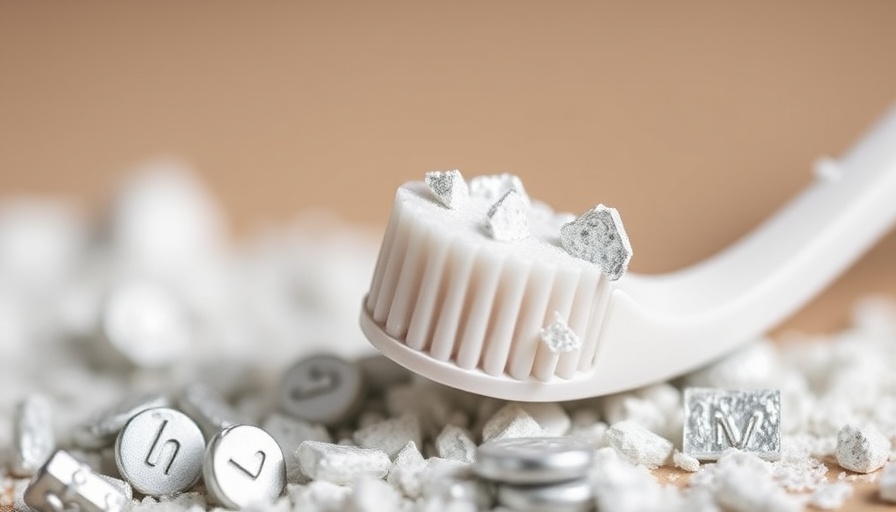
Understanding Heavy Metals: A Hidden Danger in Toothpaste
When you think about everyday items that pose a risk to your health, toothpaste might not top the list. Yet, ongoing research indicates that many popular toothpaste brands may contain heavy metals like lead, mercury, and arsenic. These metals are not just contaminants—they can accumulate in the body, leading to various health issues over time. In particular, lead is known to impair neurological function, especially in children, while mercury exposure is linked to kidney damage and other serious conditions.
Why Are Heavy Metals in Toothpaste?
The presence of heavy metals in toothpaste primarily stems from the ingredients used in the manufacturing process. Some abrasives used to enhance the cleaning properties of toothpaste, like calcium carbonate or talc, can naturally contain heavy metals. Additionally, certain flavoring agents or preservatives might introduce these contaminants. Regulations governing the acceptable limits of heavy metals in personal care products are often less stringent compared to food and drinking water, resulting in potential risks for consumers.
The Impact on Your Health
The health implications of long-term exposure to heavy metals, particularly through daily use of toothpaste, are a growing concern. The American Dental Association has acknowledged potential sources of lead in oral hygiene products, and research has shown that even low levels of heavy metal exposure can be harmful. Symptoms of toxicity may not appear immediately, making it especially hazardous. Chronic exposure to arsenic, for example, is associated with various cancers and severe skin conditions, while lead can affect cognitive abilities in both children and adults.
Awareness and Consumption Choices
For adults seeking to improve their wellness, knowledge is power. Shifting to natural or organic toothpaste brands that specifically test for heavy metals can be a viable solution. Consumers should seek third-party testing results or certifications that assure safety from harmful contaminants. Some brands market themselves as free from heavy metals, but it's important to investigate their claims further.
Making Informed Choices: Your Guide to Safer Oral Hygiene
It is crucial to consider practical steps for ensuring your toothpaste is safe. Here are a few tips:
Research Brands: Take time to research toothpaste brands and read ingredient labels. Look for products that specify "heavy metal-free" or those with organic certifications.
Support Local: Local brands often prioritize transparency and might present less risk as they may undergo rigorous testing.
Stay Informed: Follow health news regarding recalls or studies involving personal care products, as the industry frequently evolves.
Beyond Toothpaste: A Holistic Approach to Oral Health
While the focus here is on the potential dangers of heavy metals in toothpaste, it's essential to engage in a holistic approach to oral health. This includes regular dental check-ups, a balanced diet rich in vitamins for gum health, and alternative methods such as oil pulling that promote detoxification. By making conscious choices now, you can significantly improve your long-term health.
Heavy Metals in Everyday Toothpaste Threaten Your Health, the conversation about toxic exposure becomes a rallying point for awareness and change. Consumers are not helpless; by understanding the risks, we can advocate for safer products and cleaner ingredient regulations.
 Add Row
Add Row  Add
Add 




Write A Comment